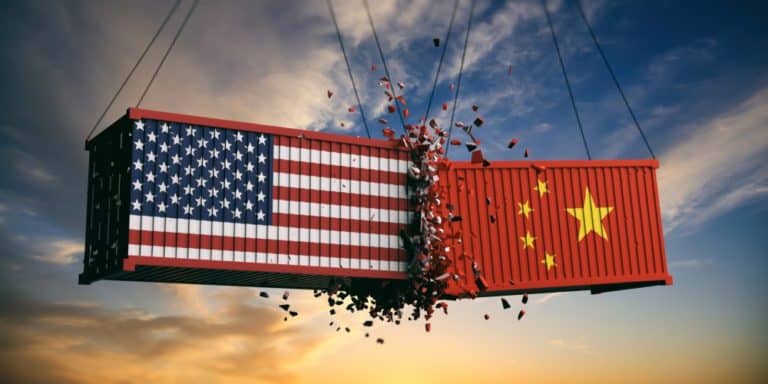The latest action by China is seen as a reaction to trade restrictions imposed by the US last year.
Commerce Secretary Gina Raimondo is fuming over the move by China to ban the import of Micron memory chips from the US. Speaking to reporters over the weekend, Raimondo said that the US “won’t tolerate” the Chinese ban, which she characterised as “economic coercion”.
Her remarks mark the strongest reaction yet to the Chinese cyberspace regulator’s ruling this month ‘that America’s biggest maker of memory chips poses “serious network security risks”.
The decision means that Micron’s products will be banned from key infrastructure projects in China, the world’s second largest economy.
An escalating trade war
Speaking after a meeting of trade ministers in the US-led Indo-Pacific Economic Framework (IPEF) talks. Raimondo declared that the U.S. “firmly opposes” China’s actions against Micron. “As we said at the G7 and as we have said consistently, we are closely engaging with partners addressing this specific challenge and all challenges related to China’s non-market practices”, she stated.
Raimondo’s remarks echo earlier statements made by Senate Majority Leader Chuck Schumer, who has promised direct presidential action on the Micron ban. “I am working closely with the Biden administration to make clear to the Chinese government that this sort of behavior is unacceptable and unproductive”, Schumer announced last week.
US enlists its Indo-Pacific allies
It seems the US strategy now is to engage its allies in the region to help it further combat China. To this end, Raimondo explained that the IPEF agreement on supply chains would be consistent with US investments in the $52 billion (€48 billion) CHIPS Act to foster semiconductor production in the United States.
“As we said at the G7 and as we have said consistently, we are closely engaging with partners addressing this specific challenge and all challenges related to China’s non-market practices.”
“The investments in the CHIPS Act are to strengthen and bolster our domestic production of semiconductors. Having said that, we welcome participation from companies that are in IPEF countries, you know, so we expect that companies from Japan, Korea, Singapore, etc, will participate in the CHIPS Act funding,” Raimondo said.
